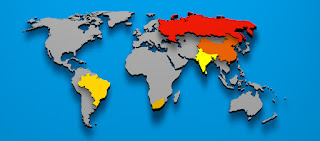BRICS Currency Not on Agenda Is BRICS Currency Idea Falling Apart?
https://www.iraqidinarusd.com/2023/07/brics-currency-not-on-agenda-is-brics.html
Is the BRICS currency idea falling apart? The much anticipated BRICS currency topic will not be discussed. Oh, there will be a meeting. However, the agenda will focus on de-dollarization!
As the anticipation surrounding the BRICS currency continues to build, South Africa's diplomat in charge of BRICS relations, Anil Sooklal, recently clarified that the group’s upcoming leaders’ summit will not address this issue. Instead, the focus of the meeting in Johannesburg this August will be de-dollarization and promoting the use of national currencies for international trade. Yet despite this clear goal set by Sooklal, doubts still linger as to whether or not the BRICS nations will be able to successfully reduce their reliance on the U.S. dollar.
The prospect of BRICS countries introducing a gold-backed common currency has been met with passionate debate. Many, including Russian Foreign Minister Sergei Lavrov and Brazil’s President Luiz Inacio Lula da Silva, have championed the initiative in light of the heavy financial sanctions imposed on Russia by the West.
Leslie Maasdorp, vice president and chief financial officer of the New Development Bank – also known as the BRICS Bank - has stated that there are no immediate plans to launch any such currency to compete with the U.S. dollar. But while Sooklal from the South African Reserve Bank has noted that the days of a “dollar-centric world” are over, he acknowledged that some may view
de-dollarization as a means of economic retribution.
At this point, it is unclear whether or not a common currency will be announced at the August summit, and many remain divided on the matter.
Earlier this month, India’s foreign minister declared that national currencies would continue to dominate international finance. But Russia's central bank governor noted that a BRICS-specific currency remained possible in the future, given the consent of multiple players and the implementation of important policies such as banking and fiscal unions. South Africa's central bank governor echoed these sentiments, expressing the need for macroeconomic convergence among participating countries.
At the same time, Sooklal confirmed more than 40 nations had expressed interest in joining the BRICS bloc, with 22 having submitted formal applications. He optimistically claimed that the BRICS group could even expand to include more than 50 countries. However, many skeptics worry expanding too quickly could undermine much-needed reforms and diminish the potential of new members.





